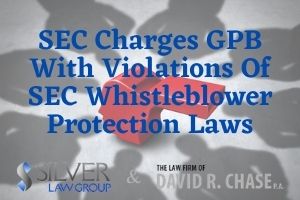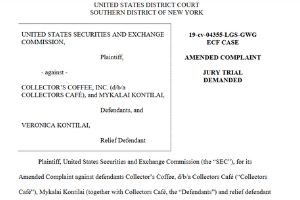On September 29, 2016, the Securities and Exchange Commission (the “SEC”) announced that casino-gaming company International Game Technology (“IGT”) agreed to pay a $500,000 penalty for firing an employee who reported to senior management and the SEC that the company’s financial statements might be distorted.
The whistleblower retaliation case is the second of its kind since the Dodd-Frank Act authorized the agency to bring retaliation charges. According to the SEC order, the employee had been a director of an IGT division since 2008 and received positive performance reviews throughout his time with the company and never received any sort of discipline or corrective action.
The whistleblower received a favorable evaluation in the 2014 mid-year review and was deemed an employee on the rise, according to the order. Shortly after that review, the whistleblower raised concerns to his managers, to the company’s internal complaint hotline, and to the SEC that IGT’s publicly-reported financial statements may have been misstated. Approximately three months after the whistleblower raised his concerns, according to the order, IGT terminated him.
 Can a company prohibit former employees from speaking to federal regulators, such as the SEC, and function as a whistleblower? They can certainly try, but it is still illegal.
Can a company prohibit former employees from speaking to federal regulators, such as the SEC, and function as a whistleblower? They can certainly try, but it is still illegal. SEC Whistleblower Lawyer Blog
SEC Whistleblower Lawyer Blog


 The Securities and Exchange Commission (SEC) alleges that GPB Capital Holdings violated whistleblower protection laws by retaliating against a whistleblower and preventing people from going to the SEC with information.
The Securities and Exchange Commission (SEC) alleges that GPB Capital Holdings violated whistleblower protection laws by retaliating against a whistleblower and preventing people from going to the SEC with information.  The Securities and Exchange Commission (SEC) alleges that Collectors Café, an online memorabilia auction company, and its CEO Mykalai Kontilai, illegally tried to stop investors from reporting misconduct to the government in violation of the SEC’s whistleblower protection rules.
The Securities and Exchange Commission (SEC) alleges that Collectors Café, an online memorabilia auction company, and its CEO Mykalai Kontilai, illegally tried to stop investors from reporting misconduct to the government in violation of the SEC’s whistleblower protection rules.